
IN TODAY’S REPORT
Briefing
BMW Recall Situation
New Trend: SDV Joint ventures
Volvo ditching subscription model
Continental Spinoff?
Geely scouting European locations while VW is shutting a plant?
FREE RESOURCE: How to read a Microcontroller Datasheet?
Patents
Tesla reveals its modular ‘unboxed’ EV manufacturing process in a patent
Tesla Wireless Car Charging Pad Revealed In Patent Drawings
Market Snapshot
From Twitter
BRIEFING
Summary
BMW is facing a massive global recall affecting over 1.5 million vehicles due to a faulty Integrated Braking System, with costs potentially nearing €1 billion. The issue was first identified during an internal quality check and has expanded beyond the original recall scope, affecting models produced between June 2022 and August 2024. BMW developed diagnostic software to detect the brake fault before it occurs and promises free system replacements for affected cars. Continental AG, the supplier of the brake system, confirmed the fault but expects only a small number of systems to need replacement. The recall, combined with weak consumer demand in China, has led BMW to revise its 2024 earnings forecast, lowering expectations for its EBIT margin to 6%-7%, down from 8%-10%. Shares of BMW fell more than 11% following the announcement, and Continental shares dropped by over 10%.In addition to the braking system recall, BMW also recalled 1.4 million vehicles in China due to defective Takata airbags. (Link)
The interesting thing in both these recalls is that a safety-critical system is the one affected
Both domestically produced and imported cars in China are affected. So that makes me think the issue could be with the supplier's specific variant of the airbag.
The supplier of the airbags, Takata airbags, had supplied to also Ford. They also had 3 million vehicles recalled. Takata went bankrupt in 2021.
OEMs fall to the standard of their suppliers. No matter what quality checks and requirements you put on the supplier. At the end of the day, all the ugly solutions, work arounds and hacks done by the supplier catches up.
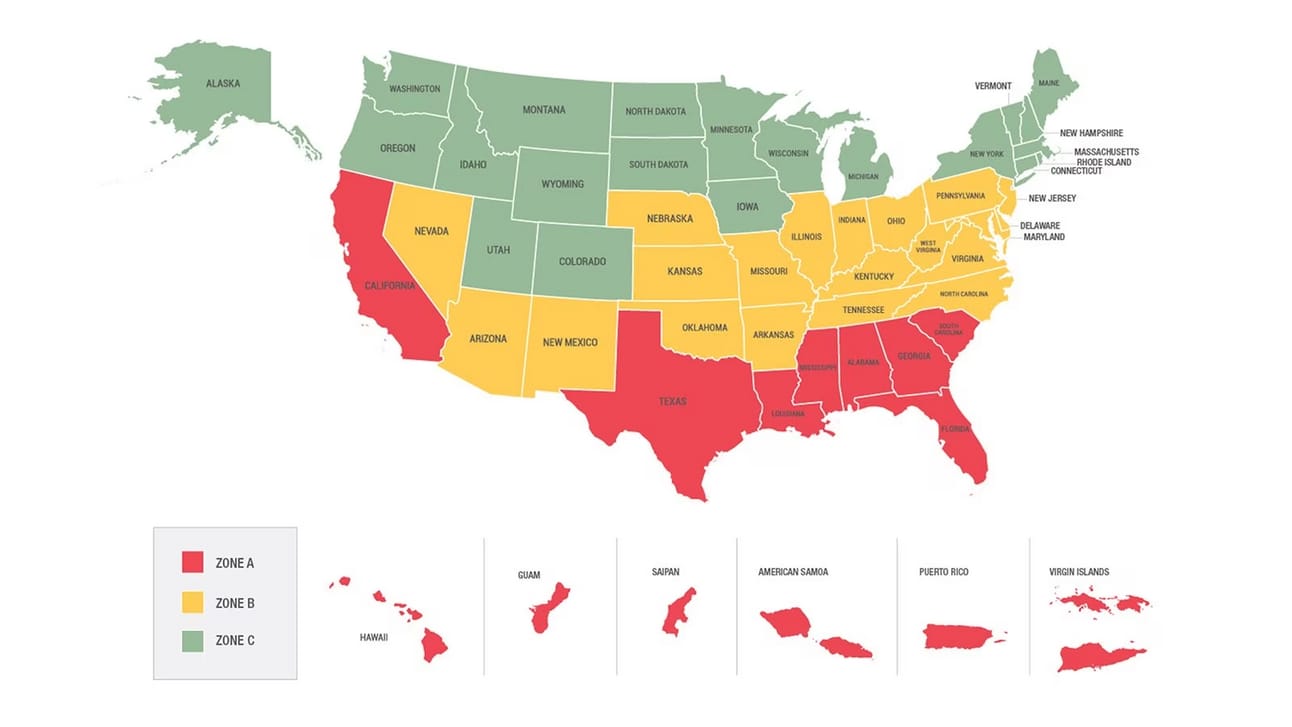
New Trend: SDV Joint ventures
Hyundai and GM: Hyundai and General Motors are exploring a potential collaboration to co-develop and build cars together, focusing on leveraging their combined strengths to expand their product offerings and share development costs. (Link)Honda, Nissan, and Mitsubishi: These three Japanese automakers have teamed up to cooperate on technology development, including areas such as electric vehicles (EVs) and advanced driver-assistance systems (ADAS), aiming to remain competitive in a fast-evolving automotive market. (Link)Toyota, Mazda, and Subaru: This partnership focuses on developing new combustion engines. The three companies aim to enhance the efficiency and performance of internal combustion engines while balancing environmental goals as they transition to alternative powertrains. (Link)GM and Honda: General Motors and Honda have decided to abandon their previously announced plans to produce affordable electric cars together. The cancellation marks a shift in strategy for both automakers as they focus on other EV initiatives. (Link)Geotab, Kia, and 42dot: These companies have joined forces to advance the future of fleet management, utilizing Geotab's telematics expertise, Kia's vehicle lineup, and 42dot's software solutions to enhance fleet efficiency and automation. (Link)Rivian and Volkswagen: Rivian and Volkswagen were exploring a potential collaboration, but no formal joint venture materialized. Their discussions were centered around sharing technology and platforms, particularly in the electric vehicle space. (Link)
But why?
OEM's on their own are beginning to understand the efforts it takes to develop all the software in-house(assuming that is their definition of being SW defined). The cost of the efforts for their company is simply not justifiable. But the math works out if there are multiple OEMs that can pool their resources to develop common solutions
There is an underlying fault in this line of thinking. When common solutions are being developed, the solution is averaged out among all stakeholders. Meaning, the best of solutions AND the worst of solutions don't end up getting produced.
One reason for all these joint ventures is the regulation that is pushing OEMs to team up to enter new markets. (China). These started out as production partners but now it has gone beyond that and there is an active exchange of technology.
Strategists in these different companies are looking for a "solution" that they can present to higher management and the board. And a collaboration with another established OEM seems like prudent thinking at first. But as we get to the details, it might not be the case.
Lacking vision: OEMs that are "just" trying to be like Tesla is not a vision. So they end up creating all these scenarios to justify a high R&D and SW spend. And even when that does not begin to show in the balance sheet. They look for other more "palatable" strategies.
I have a running hypothesis: The bigger the company the faster the knee-jerk reaction to buy or borrow instead of building.

Summary
Volvo has suspended its subscription program, "Care by Volvo," in the U.S. and Europe as of August 1, 2024, to focus on core customer offers and increase operational efficiency. The "Care by Volvo" program, launched in 2017, allowed flexible vehicle subscriptions but faced dealer criticism and legal issues in California. It was profitable by 2020 but has now been discontinued.
Speaking at a roundtable discussion during the 2025 XC90’s reveal last week, Volvo Chief Engineering and Technology Officer Anders Bell told The Drive that while some subscription models are acceptable, there are some that even he would struggle to justify.
There is an important distinction to be made here. Volvo is stopping their subscription model for their cars. This is not about the subscription for their connected services.
For an OEM, the ultimate product, the core offering is the vehicle itself. Added services is still only an addition to that model. If don't correctly, it can complement the core business.
OEM's touting themselves as a tech/SW company, in my opinion is only is a wishful state. So they can enjoy the higher stock multiples that other tech companies enjoy. But this bet shouldn't be at the cost of their core offering, which is the vehicle.
Continental Spinoff? (Link)
The Automotive division, which reported sales of approximately €20.3 billion in the last fiscal year and employs around 100,000 people, would become an independent company under this plan. The division has been consolidated into a single legal entity since 2022 and is involved in developing brake systems, sensor solutions, displays, and software for autonomous vehicles.
Why this makes sense?
Conti is getting too big to manage within the Automotive division.
The pace of business is very different from the other sectors that Conti operate in. The changes that customers are demanding of Tier1/2 suppliers like Conti is going to change big time.
Suppliers like them HAVE to transition more as development partners to OEMs and not just mere HW/SW suppliers. The trend of SDV is only accelerating this.
Suppliers that bet on their own in house platform that they sell, will have to deal with the unbundling of the automotive SW stack.
They are hedging their bets. The most profitable parts of the business still stay under the Continental Umbrella.
Geely scouting European locations while VW is shutting a plant? (Link)
Summary
Geely is scouting locations for a plant in Europe but has not fully committed to building local production. "It is not 100% yet," said Li Chuanhai, vice president of Geely Auto Group, when asked about building a plant in Europe.Talks are ongoing between Geely and Poland's new government regarding a joint electric vehicle plant, but Poland has expressed reservations about Geely as a partner. Nicolas Appelgren, Europe CEO for Geely's Lynk & Co brand, confirmed the brand is scouting locations across Europe.Lynk & Co will launch a China-made battery-electric car in Italy next month but plans to build its next battery-electric car in Europe, though no timeline has been set.Chinese carmakers like Geely, Chery, and Great Wall Motor are planning local plants in Europe as the European Commission considers stricter trade barriers for imported EVs, with potential tariffs of up to 35.3%.
What makes this interesting?
VW announced last week that they have plans to shutdown production plant in Germany due to slowed down demand in EU
Coincidentally the same week, the Chinese automaker Geely is reported to be scouting for production locations in Europe
To me this is the tipping of the balance. The tides are shifting to more foreign players playing a major role in the European Market.
The incumbents have been caught snoozing. The companies local to the market have failed to innovate while their counterparts in China have been outpacing them.
EU tariffs are actually pushing Chinese OEMs without an option to also produce within the EU. This could mean well from a jobs perspective, but automakers have been a key part of European GDP and that model is at question here.
FREE RESOURCE
How to read a microcontroller datasheet?
1. How to Read a Datasheet (Michigan State U.)
2. How to Read a Datasheet (sparkfun)
3. Microcontroller Documentation Explained (Elektor Magazine)
PATENTS
Tesla reveals its modular ‘unboxed’ EV manufacturing process in a patent (Link)
Summary
Tesla has revealed a new modular "unboxed" EV manufacturing process, outlined in a recent patent application, which will be used for the upcoming Tesla Robotaxi. This process allows Tesla to work on separate sections of a vehicle individually before bringing them together at a later stage in assembly, unlike traditional methods where the entire vehicle is assembled in sequence. The "unboxed" method was initially intended to produce a more affordable $25,000 Tesla, but those plans were canceled, and now it's reserved for the Robotaxi platform. The patent describes a modular vehicle architecture where different sections of the car (front, rear, sides, top, bottom) are assembled separately on sub-assembly lines and then joined on a mainline. Tesla is already using parts of this process, such as installing seats on a structural battery pack, and the patent also refers to “decorating” (likely painting) sections before final assembly. The first "unboxed" assembly line is being built at Tesla's Gigafactory in Texas, with more details expected during the Robotaxi unveiling next month.
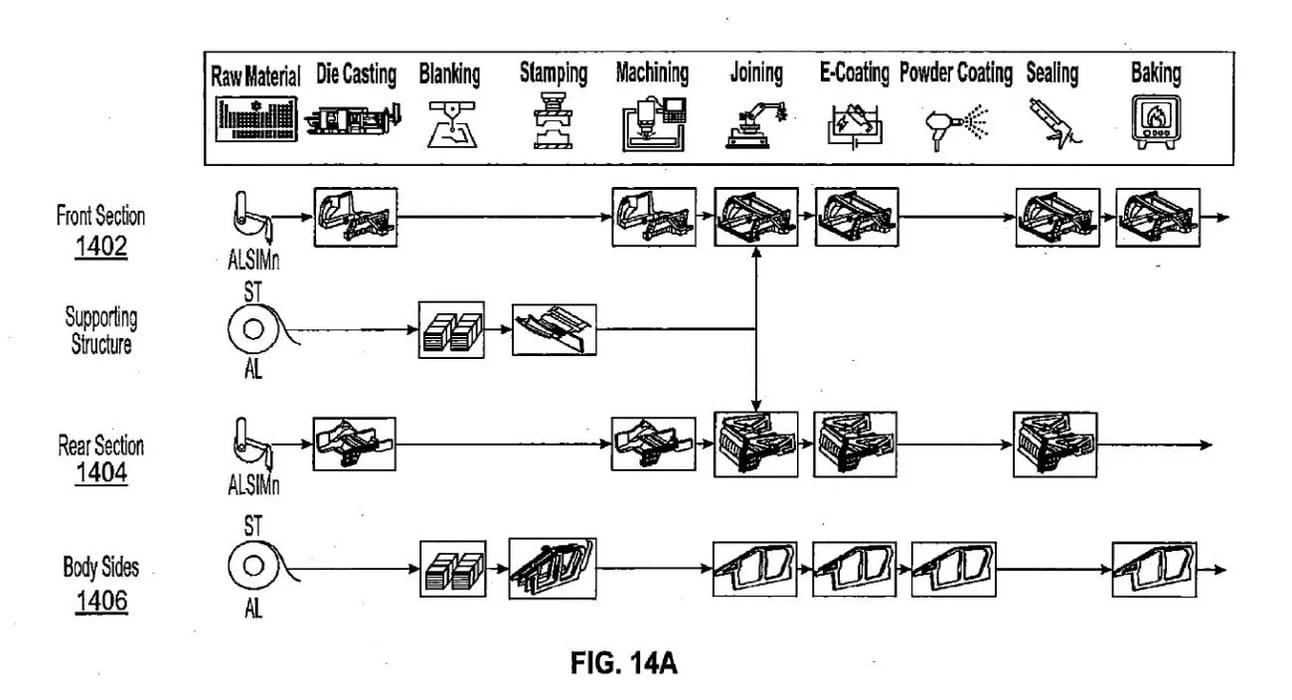
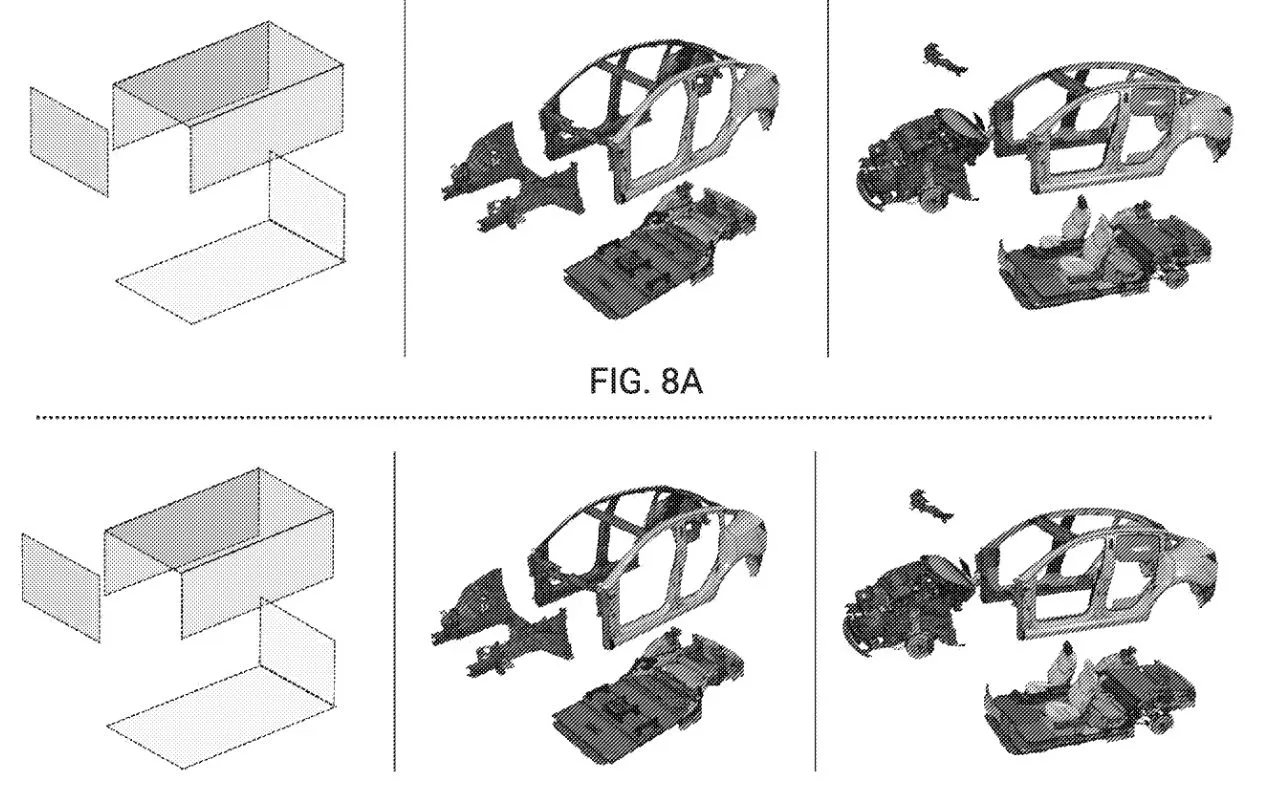
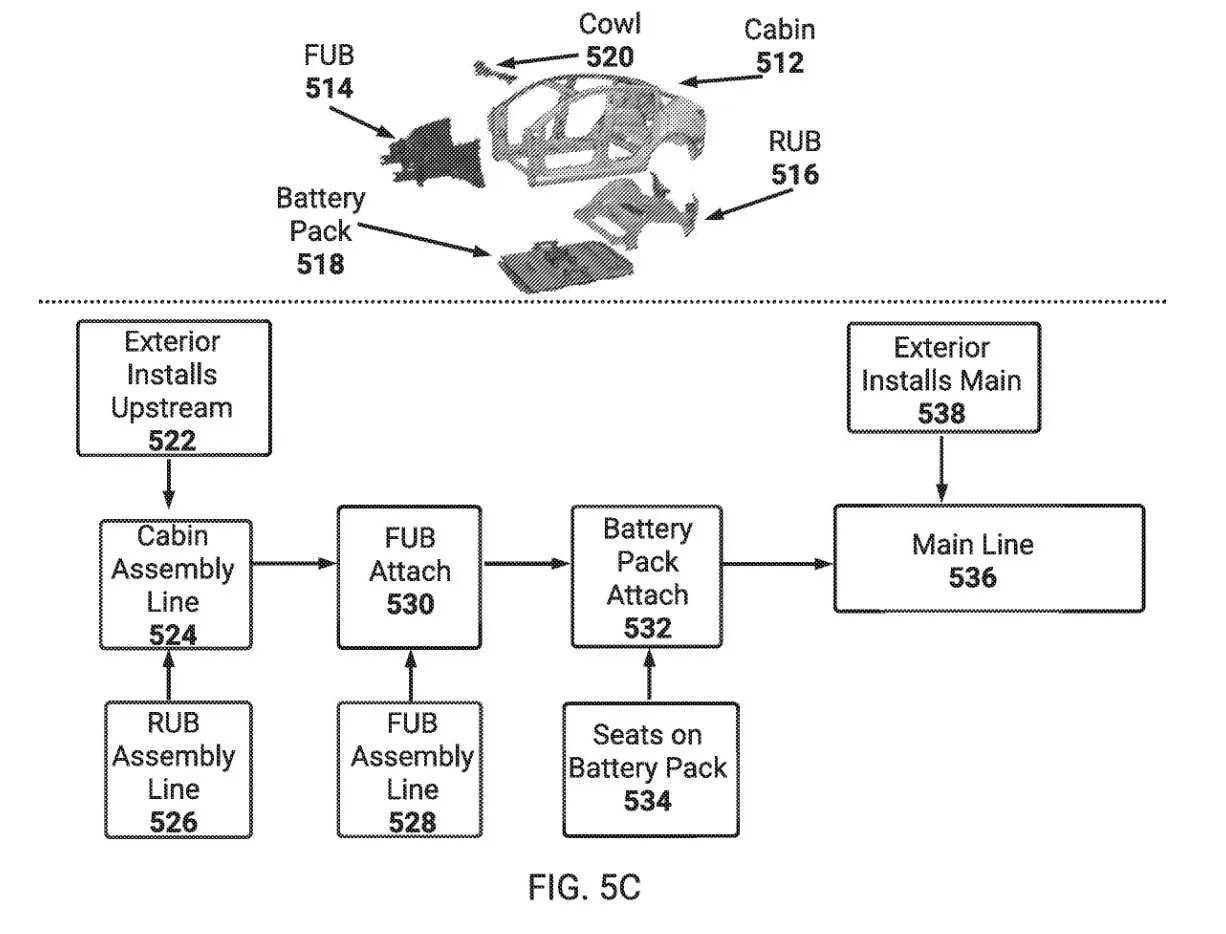
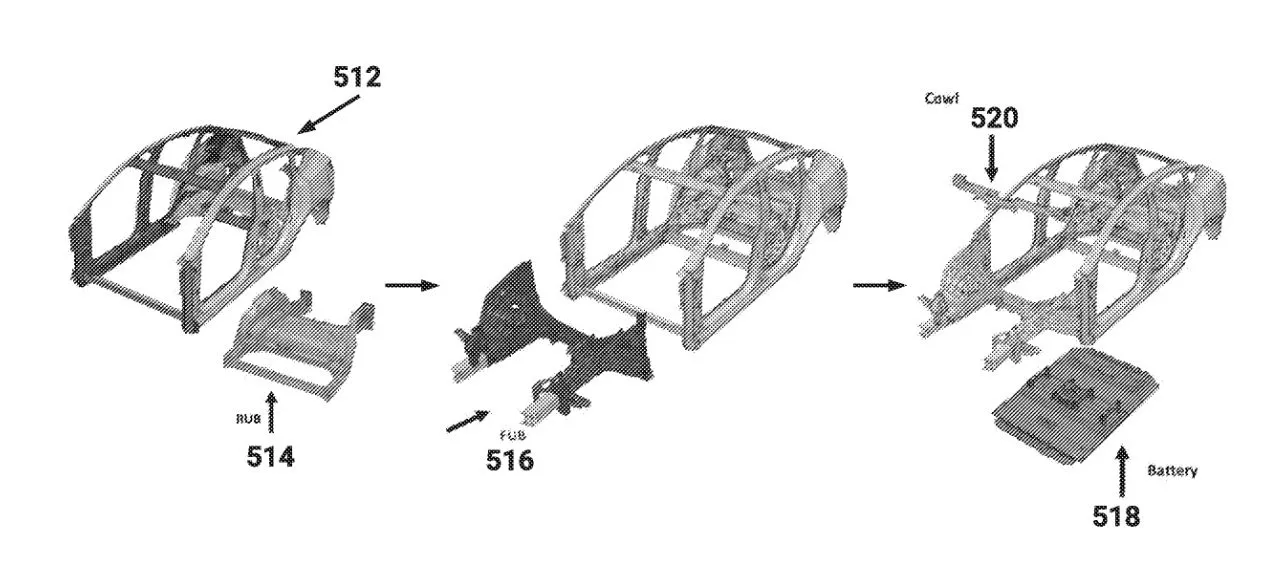
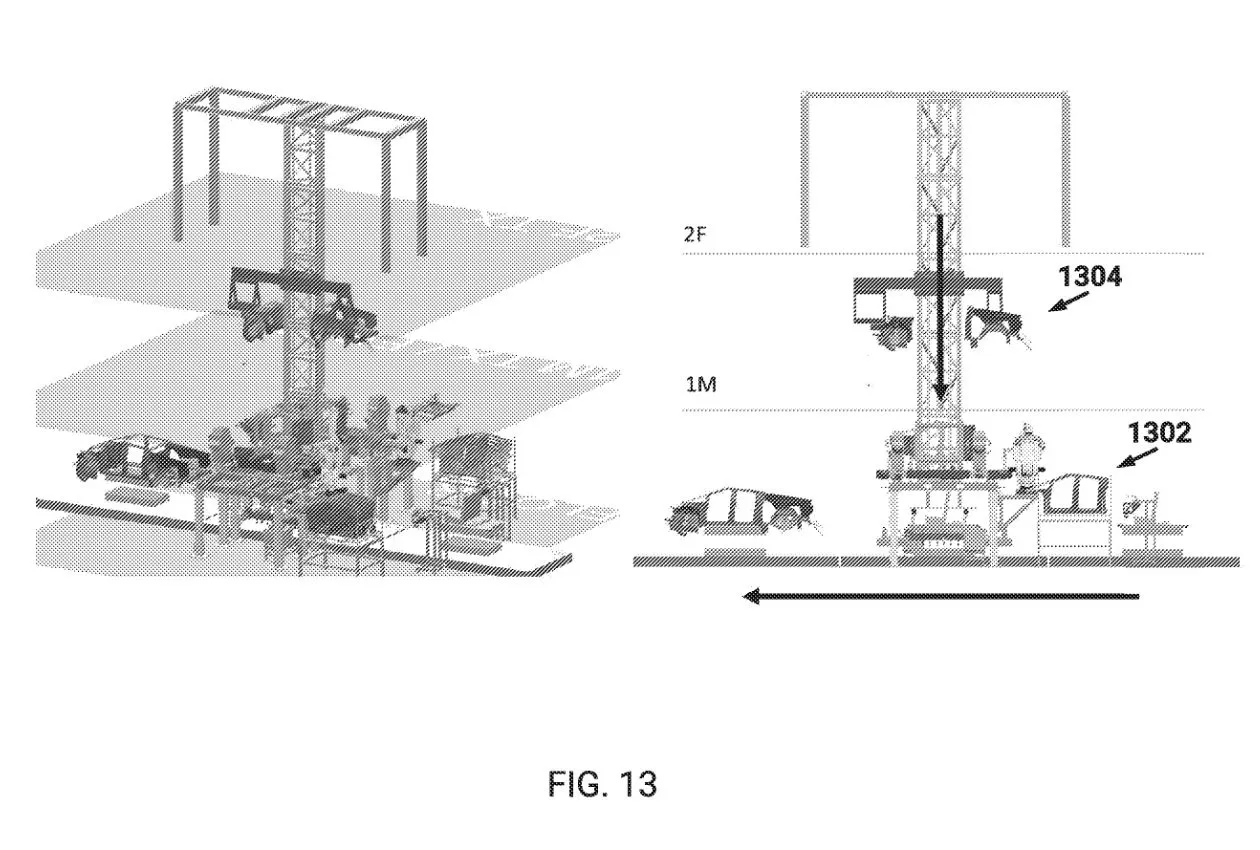
Tesla Wireless Car Charging Pad Revealed In Patent Drawings (Link)
Summary
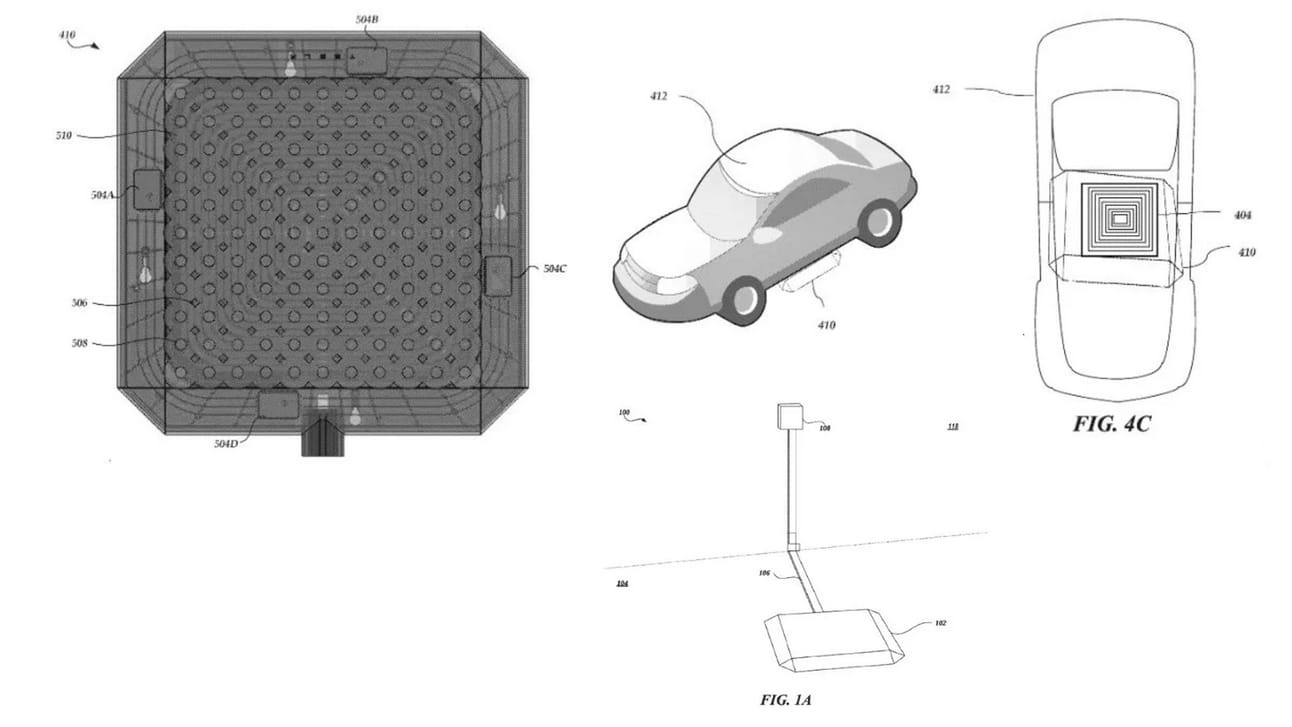
Tesla has filed four patents for a wireless EV charging pad, hinting at possible plans to offer a wireless charging solution. Tesla teased a home wireless charger in 2023 but has never officially announced plans to launch it. The wireless charging pad could be used for the upcoming self-driving Tesla Robotaxi, allowing autonomous charging without plugging in. Tesla acquired wireless power company Wiferion in 2023, suggesting further development of wireless charging technology. Wireless charging offers convenience but is slower than wired charging, with current wireless chargers maxing out at around 20 kW compared to Tesla's wired chargers, which can provide up to 250 kW. Tesla's patent applications focus on reducing current ground leakage, charging circuit design, and temperature sensors, indicating a potential move towards a wireless charging solution.
FROM TWITTER
MARKET SNAPSHOT

